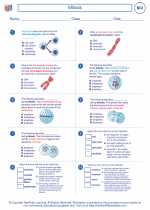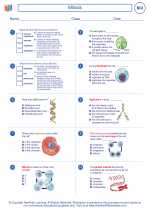Primary Consumers
Primary consumers, also known as herbivores, are organisms that occupy the second trophic level in a food chain. They are called "primary" consumers because they consume producers, such as plants, algae, and other autotrophic organisms. Primary consumers are essential for transferring energy from the producers to higher trophic levels in an ecosystem.
Characteristics of Primary Consumers
- Herbivorous diet: Primary consumers primarily feed on plant material.
- Energy transfer: They serve as a vital link in the transfer of energy from producers to higher-level consumers.
- Population dynamics: The population of primary consumers is influenced by factors such as predation, availability of food, and environmental conditions.
- Examples: Common examples of primary consumers include rabbits, deer, cows, grasshoppers, and many species of insects.
Role in Ecosystems
Primary consumers play a crucial role in maintaining the balance of ecosystems. Their feeding habits affect the distribution and abundance of plant species, which in turn impacts the entire food web. Additionally, they provide a food source for secondary consumers (predators) and contribute to nutrient cycling through their waste products and eventual decomposition.
Study Guide
To understand the concept of primary consumers thoroughly, consider the following study guide:
- Define primary consumers and explain their role in a food chain.
- Identify at least five examples of primary consumers in different ecosystems.
- Describe the impact of primary consumers on the distribution and abundance of plant species.
- Explain how changes in the population of primary consumers can affect the entire ecosystem.
- Discuss the relationship between primary consumers and secondary consumers in a food web.
◂Biology Worksheets and Study Guides High School. Mitosis

 Worksheet/Answer key
Worksheet/Answer key
 Vocabulary/Answer key
Vocabulary/Answer key
 Vocabulary/Answer key
Vocabulary/Answer key
 Vocabulary/Answer key
Vocabulary/Answer key
